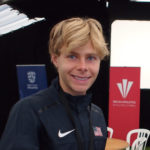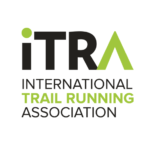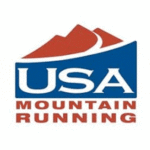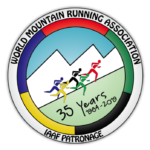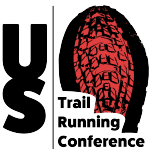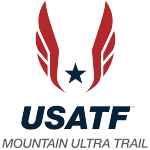
From April 19 to June 6, 2023, Tayte Pollmann, American Trail Running Association, “Trail Trotter” traveled to the highest mountains in the world, the Himalayas, to discover Nepal’s trail running scene. He had traveled to the country five years prior and was impressed by the talents of Nepali runners who moved with ease on some of the world’s highest and most technically difficult running trails. In this most recent forty-eight-day Nepal trip, he set intentions of meeting local Nepali runners (elite to back-of-the-pack), learning about Nepal’s trail racing scene, and discovering what the sport offers to locals and foreigners. Pollmann’s mission was to highlight mountain running in Nepal, a mecca for mountain running, that is largely ignored by Western media. His travels took him to the remote Western region of the country where his blonde hair, blue eyes, and American pronunciation of the local greeting “Namaste” were marvels to the locals unaccustomed to outsiders, as well as to central and Eastern regions more frequented by tourists, including the country’s most popular trekking trail, The Everest Base Camp Trek. The following article is a series of three articles, each focusing on trail races that Pollmann attended during his travels to better understand Nepal’s small but flourishing trail running community. This series intends to shine a light on mountain runners who challenge themselves on trails among the world’s tallest peaks and whose talents go largely unnoticed by the rest of the world.
Karnali’s Miracle On Trail
Noise ordinance laws, if there are any, don’t apply on race day in Jumla, Nepal. It’s 5:30 AM, ninety minutes before a 7 AM start time, and loudspeakers are blaring in the heart of the town center. I’m here for the fourth edition of the Jumla Rara Ultra Marathon, a 49-kilometer point-to-point trail race from the town of Jumla to the remote Rara Lake National Park (Nepal’s largest freshwater lake). This race is the largest running celebration in all of Western Nepal and the town is buzzing with excitement. This is a trail running experience in a place, among people, like I have never encountered in the US.
Jumla is one of the central towns of Nepal’s Karnali province situated in the Himalayan foothills and one of the poorest areas of the country with over 40% living below the poverty line. Nepal, despite ever-increasing international tourism, still remains one of the poorest countries in the world, ranking 81st out of 121 in the 2022 Global Hunger Index. Tourist wealth goes to pockets of the county’s most visited cities, Kathmandu and Pokhara, which churn out FroYo, Smoothie bowls, bubble tea, and hotels with all-you-can-eat buffets and hot showers. Western travelers in these areas pay top dollar to avoid squat toilets and chase toilet paper like it’s the “TP crisis of 2020”.

“Noise ordinance laws, if there are any, don’t apply on race day in Jumla, Nepal.” Photo: Tayte Pollmann
Yet, this is not what Nepal is for the majority of the 30 million people who live in this country. The Karnali province will show you the life of real Nepali people. There’s a lack of English education, or any education for that matter, with still one in three women married off before the age of sixteen. American philanthropist and 2015 CNN Hero Maggie Doyne, who has lived in the Karnali region for eighteen years, shares her thoughts on living there in her latest book, Between The Mountain and The Sky, “Poor little girls work. Then they get married. Then they work again, brand-new babies buckled tight to their backs instead of books. School is an extravagance; it costs money. For many families, sending a working child to class every day could mean a significant loss of household income. It could mean more poverty, less nutrition, and no way to survive.”
In a country where education, let alone sports, are not a given rite of childhood, but a luxury, it’s an unbelievable sight to see waves of school children, men with funny hats called topis, and just about every walk of life from Jumla pinning on bib numbers, securing spectating spots amongst crowds so large they line the street’s rooftops, and dancing to traditional music as a form of pre-race warm up. In addition to the classic 49-kilometer race, there are 1-kilometer and 5-kilometer “street races” for youth and elders that energize the festivities with cheering and fast running from both young and old runners eager to run and enjoy life.
Hari Rokaya’s Huge Heart and the Karnali Sports Club
The Jumla Rara Ultramarathon is the premiere event for the local Karnali Sports Club based roughly a kilometer away from the start line. The club is nothing short of a miracle, providing extracurricular opportunities for youth in one of the least fortunate districts of Nepal. It was founded in 2007 by sixty-year-old Hari Rokaya, three-time winner of Nepal’s most prestigious mountain running race, The Tenzing-Hillary Everest Marathon, and a two-time Olympian representing Nepal in Athletics. It’s a rarity to meet an Olympic runner in Nepal. In the 2020 Tokyo Summer Olympic Games, there was only one Nepalese athlete represented in the entire Athletics sporting discipline.
“Hari Guinness Book world record holder” I’m told by several members of the club, with emphasis on the word “world.” I press on, wondering what record it is he holds in this world-renowned book. I quickly learned that what they mean to say is that he set the course record for the Tenzing-Hillary Everest Marathon, which is listed as the highest marathon in the world by the Guinness record book group (the race starts at over 17,000 feet!). Although this record is not officially in the Guinness World Record Book, Rokaya’s achievement is a far greater achievement than many of the Guinness Book records such as being the fastest person to run a marathon dressed as a star or an elf (and this is coming from your author who set a “world record” on Colorado’s infamous Manitou Incline 2,000 foot climb in a dinosaur suit). In 2019, Rokaya was honored with a lifetime achievement award by the Nepalese government.

Hari Rokaya (center) founded the Karnali Sports Club in 2007 to provide extracurricular opportunities for youth in one of the least fortunate districts of Nepal. Photo: Tayte Pollmann
Rokaya has not only had a successful running career but has been able to transfer his running knowledge to a new generation of runners, producing district, national, and international champions. He is empowering female athletes in ways that are rare in Karnali and throughout the country. Several of his runners have earned respectable careers in the army or police force, which prioritize fitness tests and give good marks to athletes who place highly in sporting competitions.
The Karnali Sports Club is supported by Rokaya’s minimal salary of 7,000 Nepalese rupees per month ($54) from the Nepalese sports commission, the majority of which he gives back to the athletes. A solar-powered flour mill on the training grounds raises funds for training and works as a double to provide fresh nutrients for hungry runners who are pushed to their physical limits. Rokaya expects his group of twenty-five runners, aged middle school to early twenties, to train twice a day, every day, snow or shine. Rokaya’s disciplined work ethic as a coach centers on honing athletic success, while shaping kids for futures beyond Jumla and Karnali village life.
Sunmaya’s Buddha Carries The Karnali Sports Club Legacy
One of his star pupils, Sunmaya Buddha, ran away from an arranged marriage at age seventeen to pursue a professional running career. Buddha was empowered by Rokaya’s training and inspired by the success of her countrywoman Mira Rai, who survived her youth as a child soldier to become one of the top trail runners in the world and earn a professional running contract with Salomon Running. Buddha, similar to Rai, showed early athletic promise and has been dominating local trail races across Nepal since 2017. She gained significant international media attention for her second-place finish at the 2022 UTMB CCC 100-kilometer competition in Chamonix, France (recording the second fastest time in race history) and second only to the World Champion Blandine L’Hirondel.
If it weren’t for the struggles of traveling internationally with a Nepalese passport, and the fact that she’s a woman in a patriarchal country where nearly 40% of women are married in their teens and one in three women in her district of Karnali are illiterate, Buddha would have already had many more chances to race with the best trail runners in the world. She has been denied entry into Europe, America, and several Asian countries by her own government when attempting to travel to races. Visas are not easy for Nepalese citizens to obtain, hence why there aren’t many Nepalese athletes competing at the world’s most renowned trail running such as the Western States 100 Mile Endurance Run, UTMB, or the World Mountain and Trail Running Championships.

Sunmaya Buddha ran away from an arranged marriage at age seventeen to pursue a professional running career. Photo: Tayte Pollmann
The dedication, toughness, and dreamer’s spirit of the Karnali Sports Club has not just encouraged talent such as Sunmaya Buddha’s, but encouraged the belief in oneself to accomplish great things and change the world for the better. The Jumla Rara Ultramarathon is the ultimate expression of this Jumla running spirit and a perfect test for athletes in the club seeking to prove themselves for larger races.
A Race By, For And Dominated By Locals
“How did I get here?” I think to myself as I stare in awe at the sparkling freshwater Rara Lake extending in front of me. I’m at the awards celebration in Rara Lake National Park, “Jeep-lagged” by the adventure it took to get from the start to the finish line. In the past twenty-four hours, I’ve just ridden in a Jeep for several hours with the race organizers, then trekked the final 8-kilometers in a dark forest by night to reach the finish. During the race, the weather was a nasty freezing rain and snow and I can only imagine the challenge of running the full 49 kilometers undertaken by the thirty-nine finishers of this year’s race.
There’s so much more about my journey to Rara that I could describe, such as rescuing near hypothermic runners into our Jeep, fishtailing down muddy, rutted-out slopes as the weather worsened, encountering horseback riders by night approaching with no headlamps who trusted their steads’ superhero-esk night vision that allowed them to navigate the trail flawlessly at fluid canters, or carrying out a rescue mission for a runner who went missing in the night, bunkered down in a cave on the side of the mountain, waited until the warmth of sunrise and arrived smiling to the finish the next morning. Did I mention Nepali people are tough?
My experience in Jumla and Rara is nothing like what the typical American tourist will discover in Nepal. Western tourists are exploding into this country to attend yoga retreats, do extreme adventure sports such as white water rafting, and increase their Instagram following with pictures of iconic peaks they’d never dare to approach without guides (who also carry all of their gear). Yet, this area of Western Nepal is still largely undiscovered. Rara Lake’s National Park status protects many of the native bird, bear, deer, panda, frog, trout, and horse species in and around the lake. It has not been commercialized (or polluted) in the same way as Mount Everest or tourist-centric towns such as Pokhara. I feel grateful to be one of very few international people to explore Rara Lake, and to have made it there without sleeping in a cave atop a mountain ridge in a snowstorm!

Manju Rawat finished first for the women at the 2023 Jumla Rara Ultramarathon. Photo: Tayte Pollmann
At the awards ceremony, the results were unsurprisingly dominated by the Karnali Sports Club athletes and runners from surrounding regions. The top three women and men in the 49-kilometer race were as follows:
Women:
Manju Rawat 6:06:23 (Jumla, Nepal)
Ganana Bhandari 6:54:27 (Jumla, Nepal)
Anita Budha 7:05:46 (Jumla, Nepal)
Men:
Dal Kunwar 4:54:10 (Jumla, Nepal)
Dhir Budha 5:08:41 (Jumla, Nepal)
Lal Mahat 5:26:55 (Jumla, Nepal)
See full results here: https://karnalisports.com/results-4th-jrum-marathon-2/
Although race participants were mostly Nepali, the 2023 edition was included in the Asia Trail Masters Series, a running series that includes events in over fourteen Asian countries and in which runners can earn points to secure their place in an annual final. This attracted international runners to make the trek up to this event, as well as boosted the race’s social media reach. There were foreign runners from four countries represented in this race, Ireland, the UK, the USA, and India. The first international runner placed sixteen out of thirty-nine. The Jumla Rara Ultra Marathon is certainly not yet a destination race for international trail runners, but word about its exciting celebration of this sport will surely attract a handful of adventurous runners from across the world. At its core, this is a race for the locals to shine, not a race that caters to tourists.
Marathon: One Word From One World To Another
My life, similar to the Jeep road that brought me to this remote slice of mountain paradise, feels unpredictable, bumpy, and in need of some smoothing over—yet leads me to a beauty most people in the world never have the opportunity to experience. The Karnali people have little privilege, yet allow me as a total stranger the privilege of joining their passionate celebration of their hometown Jumla Rara Ultra Marathon. “Marathon,” a Nepali-English cognate, is a word I’ve heard on this race day countless times (likely as many times as the most basic Nepali greeting “namaste”). My brain, grasping to understand any sound that’s familiar, clings to this word. Yet, there’s something different about the way these Karnali people say the word, and it’s not their Nepalese accent. “Marathon,” I say to myself as we depart Rara Lake in Jeeps back for Jumla. I hear something new in a word I’ve said so many times in my career as a trail running writer. The word lights me up, knowing that even in one of the most remote areas in a country on the other side of the world, I’ve found a community that welcomes me to share in a celebration of the sport I know and love the most.

